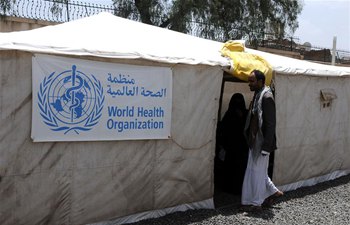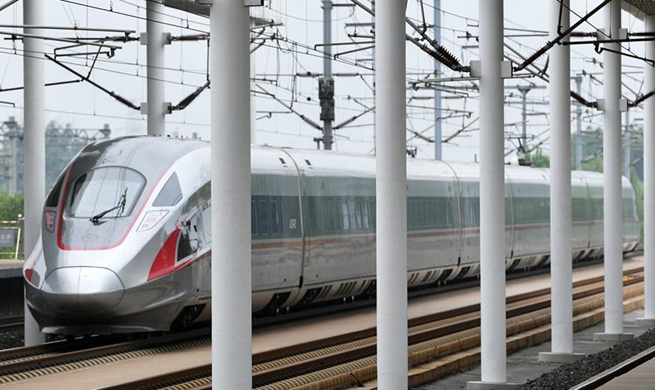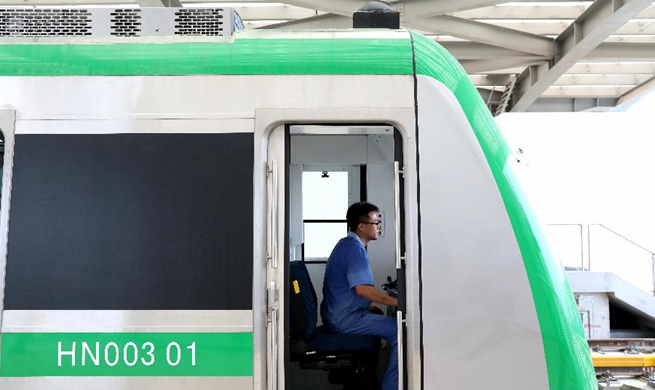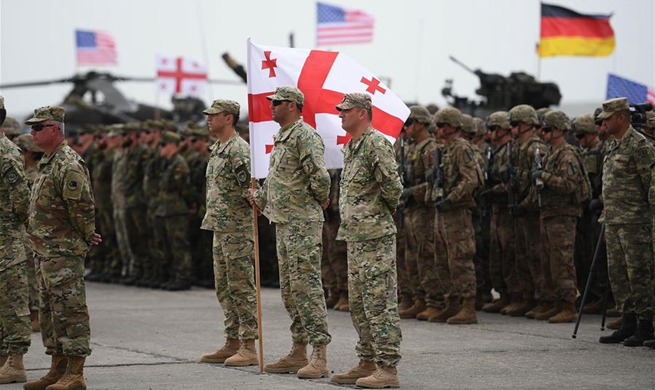WASHINGTON, Aug. 1 (Xinhua) -- Tensions between the United States and Turkey further escalated Wednesday after Ankara criticized the sanctions imposed by the U.S. Treasury Department on two Turkish senior ministers over a detained American pastor.
In a statement, the Turkish Foreign Ministry vowed to "retaliate" against U.S. "aggression" over the case of Andrew Brunson "without any delay," and called on Washington to reverse its decision.
"There is no doubt that this decision, which is a disrespectful intervention in our legal system, is contrary to our relationship with the United States and that it will cause great harm to ongoing constructive efforts to solve the problems between the two countries," it said.
Earlier on Wednesday, the U.S. Treasury sanctioned Turkish Minister of Justice Abdulhamit Gul and Minister of Interior Suleyman Soylu, saying they had "played leading roles in the organizations responsible for the arrest and detention of Pastor Andrew Brunson."
Denouncing the move as "unfair and unjust," Treasury Secretary Steven Mnuchin said Brunson's detention and continued prosecution by Turkish officials are simply "unacceptable," and the United States expects Turkey to release him immediately.
As a result of these sanctions, any property or interest in property of both Turkish ministers within U.S. jurisdiction is blocked, and U.S. persons are generally prohibited from engaging in transactions with them.
On the same day, White House spokesperson Sarah Huckabee Sanders said in a press briefing that President Donald Trump has discussed the matter of Brunson on "several occasions" with his Turkish counterpart Recep Tayyip Erdogan, and "he's not happy with Turkey's decision not to release Pastor Brunson."
"The President has been closely following the ongoing situation in Turkey involving Pastor Andrew Brunson," she said, adding the U.S. sanctions were directed by Trump.
Brunson was indicted for allegedly having links with the outlawed Kurdistan Workers' Party and Fethullah Gulen, an exiled Turkish preacher who has allegedly masterminded the failed coup attempt in 2016 to topple Erdogan.
A Turkish court last week agreed to move Brunson from prison to house arrest over health concerns, but it still does not allow him to return to the United States.
U.S. Secretary of State Mike Pompeo said later that this "long overdue" move "is not enough," and Washington calls on Turkish authorities "to resolve his case immediately in a transparent and fair manner."
However, on Tuesday, Brunson's appeal to be released from house arrest was rejected by the court.
U.S. Vice President Mike Pence said last month that the United States will slap "significant" sanctions on Turkey unless it releases Brunson "immediately."
Trump also said earlier that Brunson's detention was "a total disgrace," and urged Ankara to release him soon.
For its part, the U.S. Senate introduced bipartisan legislation on July 19 to restrict loans from international financial institutions to Turkey "until the Turkish government ends the unjust detention of U.S. citizens."
Turkey responded with a strongly worded statement. Its National Security Council said on Monday that the threatening language of the United States is "unacceptable and disrespectful."
Besides Brunson's case, there have already been too many issues between the two countries standing in the way of a rapprochement, Wayne White, former deputy director of the Middle East Intelligence Office of the U.S. State Department, told Xinhua earlier.
He cited among others the U.S.-Turkish spats over the detention of several U.S. citizens and the extradition of Gulen, and the U.S. military presence in Syria.
Turkey's purchase of a Russian S-400 missile defense system has become a new flashpoint. The U.S. Congress has introduced another bill to prevent the transfer of U.S.-made F-35 fighter jets to Turkey, claiming that Russian systems would not be interoperable with the North Atlantic Treaty Organization (NATO) and could compromise the security of U.S. jets and NATO allies at large.













